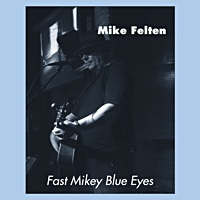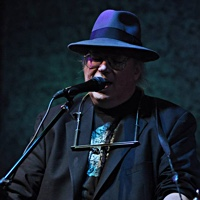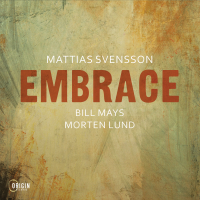Home » Jazz Musicians » Mike Felten
Mike Felten
He’s been accused of trafficking in “Outsider Americana.” Perhaps a better handle for Mike Felten’s highly distinctive musical approach would be “Chicagoana.” The Windy City is deeply and inexorably ingrained in the veteran singer-songwriter’s mesmerizing musical odes, right down to the names of streets that he’s wandered down and the shady characters haunting them in decades past. Mike knows where all the bones are buried and he’s not shy about letting us in on the secrets, blending folk, blues, and rock influences to spread the news.
Even in the middle of a pandemic, Mike’s muse hasn’t deserted him, although Fast Mikey Blue Eyes, his sixth studio CD for his own Landfill label (2017’s roots album of the year, 'Diamonds and Televisions,' was his previous release), was nearly completed when the virus hit. “I started writing songs, and wound up with about 30 of them,” he says. Only a dozen made the cut for the CD—11 of Felten’s own making and a very personalized revival of Blind Lemon Jefferson’s immortal “See That My Grave Is Kept Clean.”
A wandering troubadour in the best possible sense who routinely hopped in his car and toured nationally until COVID-19 stilled the circuit (“I think I played 150 shows last year,” he says. “This year it’s probably about 30 or 40.”), Mike is the embodiment of the working-class Johnny Lunchbucket that he named one of his previous albums after. Apart from a dozen years spent in Michigan just after he got married, Felten’s made Chicago his home his entire life. “I’m a Chicago boy, so a good percentage of my stories are of Chicago,” he says. “Most of ‘em.” For 30 years, Mike owned Record Emporium on the North Side near where he grew up, a landmark store where music was both sold and played live and scenes for several movies were filmed.
For Fast Mikey Blue Eyes, Mike recruited some heavy hitters to join him in the studio. Harmonica wizard Corky Siegel and pianist Barry Goldberg were key players in the city’s blues boom of the mid-‘60s, when young white kids joined the city’s veteran bluesmen onstage for some genre-shifting artistic cross-pollination. “They sounded real good,” says Felten. “Corky, I’ve known off and on. I booked him on what might have been one of the first outdoor festivals in Chicago in 1970, when I was at Central YMCA. We had Buddy Guy too, so that was a pretty good festival.”
Read moreTags
Mike Felten: Fast Mikey Blue Eyes

by Doug Collette
One reliable measure of a musician's mettle is the extent to which they attract players with notable pedigree to collaborate. Fast Mikey Blue Eyes is a case in point; the legitimacy of both keyboardist-composer Barry Goldberg and harpist Corky Siegel are beyond reproach, so their contributions to guitarist-vocalist-songwriter Mike Felten's sixth album (for his own label) only reaffirm his own authenticity (not to mention the independence he shares with them). It is also a tribute to the modesty ...
Continue Reading"Country, Blues and Folk blended together by a Windy City old stager; the results being surprisingly enjoyable." Americana UK
“Woody Guthrie would’ve been proud”. Folkways legend Bob Everhart
“Unreconstructed freak folk” Midwest Record Magazine
“The real deal.” Illinois Entertainer

















